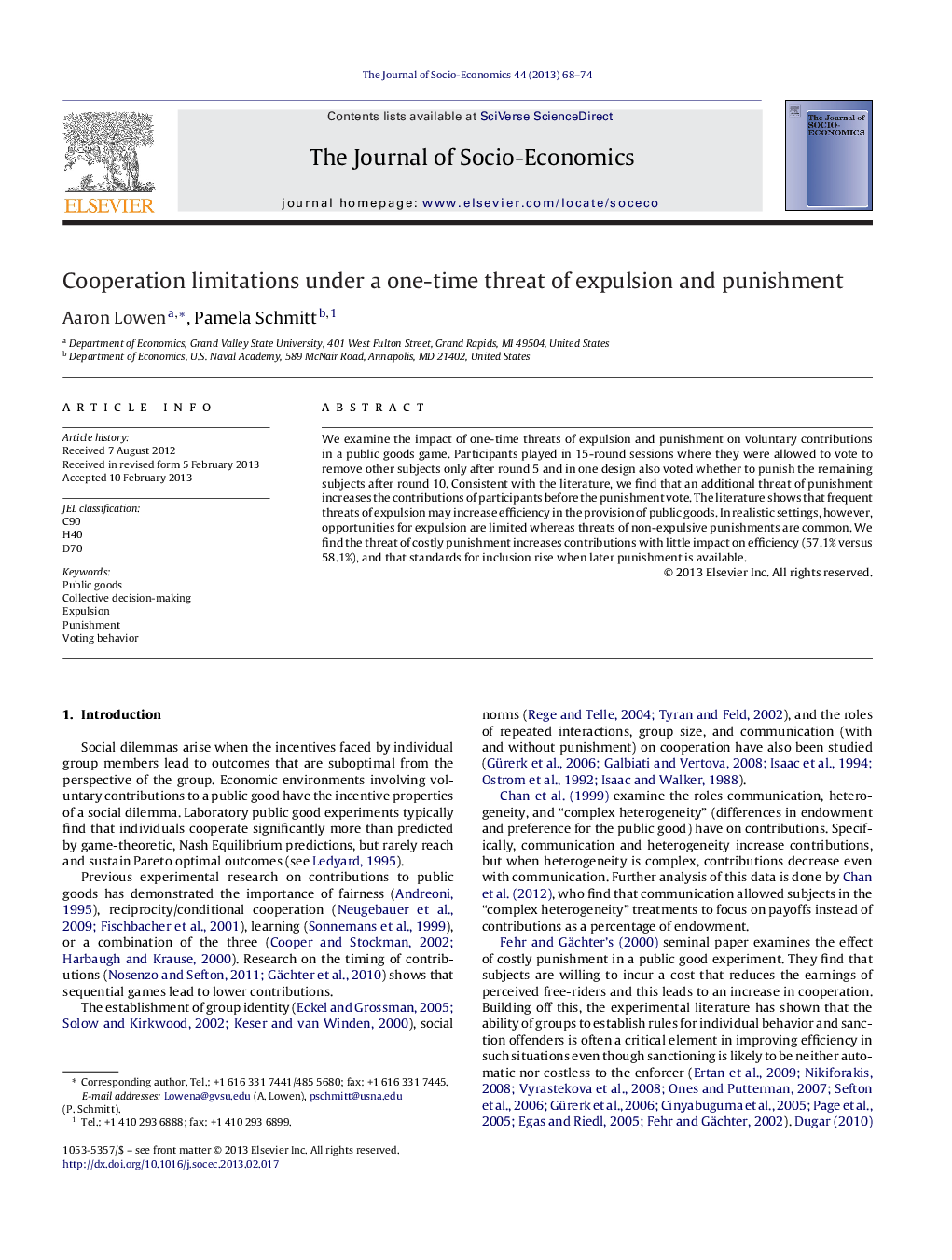| Article ID | Journal | Published Year | Pages | File Type |
|---|---|---|---|---|
| 970645 | The Journal of Socio-Economics | 2013 | 7 Pages |
We examine the impact of one-time threats of expulsion and punishment on voluntary contributions in a public goods game. Participants played in 15-round sessions where they were allowed to vote to remove other subjects only after round 5 and in one design also voted whether to punish the remaining subjects after round 10. Consistent with the literature, we find that an additional threat of punishment increases the contributions of participants before the punishment vote. The literature shows that frequent threats of expulsion may increase efficiency in the provision of public goods. In realistic settings, however, opportunities for expulsion are limited whereas threats of non-expulsive punishments are common. We find the threat of costly punishment increases contributions with little impact on efficiency (57.1% versus 58.1%), and that standards for inclusion rise when later punishment is available.
► We conduct a repeated public good experiment. ► Subjects may vote to expel and/or punish other participants. ► The threat of punishment increases contributions with little impact on efficiency. ► Standards for inclusion rise when later punishment is available.
